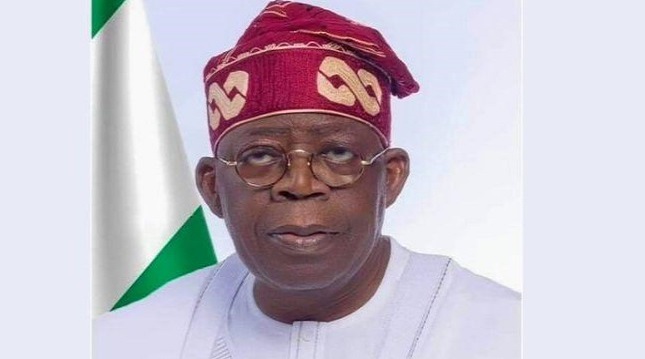News
Consumers Cry, Urge Regulators to Act

World Consumers’ Right Day has come and gone but the recently held consumer forum in Lagos offered an opportunity to discuss various issues which every consumer is daily confronted with while doing business with the banks in the country.
Speaker after speaker, who took turn to comment on how banks have been ripping innocent customers off their hard earned money, expressed their frustration and disapproval of the situation.
At the forum which was the fourth edition in a series being held by the Brand Journalists Association of Nigeria (BJAN), president of the association, Goddie Ofose, while giving his welcome remark, noted that the choice of the theme, “Banking in Nigeria: Developments Customers’ Challenges,” was relevant, apt and timely in view of the numerous complaints emanating from consumers both in the country and abroad.
Ofose noted that the essence of the forum was to draw the attention of stakeholders to the plight of consumers, stressing that there was need to address the problems. While calling the Central Bank of Nigeria to act, he emphasised the need for the regulatory body to act in the interest of consumers.
On his part, the guest speaker on the occasion, who also doubles as managing director of a leading public relations firm, Tokunbo Modupe, while taking the gathering down memory lane on what constituted a major impediment to modern banking in Nigeria, said the fact that the system was largely dominated by foreigners at inception led to difficulties encountered by Nigerians in securing loans, stressing that the situation forced many consumers to own stake in the banks. He said that even though the indigenously owned banks could not survive due to mismanagement, lack of regulation, Modupe, noted that the problem associated with loss of confidence on the part of consumers with banks emanated from that failure.
While commending the effort of some Nigerians who came to rescue the situation at that time, Modupe stated that the introduction of regulation as espoused by CBN contributed significantly to stabilize the system.
Speaking further on the challenges which the banking system had to confront with, Modupe explained that the decision by government at both state and federal levels to own and run banks impeded growth as activities in the system fell short of professionalism as obtained elsewhere.
According to him, many of the banks are subject to a lot of political considerations which led to erosion of confidence. Modupe who admitted that the reform which took place in the banking system helped a great deal in stabilizing the economy particularly when the economy was in distress, however, pointed out that bank customers were made to bear the brunt with many of them expressing dissatisfaction with the banking industry. According to him, it was a period when all sort of charges were introduced by the Central Bank of Nigeria, a development many consumers consider as violation of their right.
Modupe, who bemoaned the excessive charges that include management fees, processing fees, interest charges, commission on turnover, card maintenance fees, account maintenance fees, deposit, withdrawal and transfer telephone alert fees, and ATM fees being slammed on Nigerians, said the CBN needs to step in and provide proper explanation on some of the charges to prevent a reversal of fortune for the banking industry
Modupe was of the opinion that if the excessive charges were not addressed, it might in the long run hamper the gains recorded in various reforms embarked upon by banks
Speaking on the issue of price fixing cartel in the banking industry, which she called the Bankers, Committee, Sola Salako, president, Consumer Advocacy Forum of Nigeria, stated that the absence of competition law had allowed so many issues affecting the consumer to fester..
“It is because Nigeria does not have a competition law. We are on the verge of pushing for one after passing four assemblies. If we have a competition law, it would not allow the banking committee to exist. There are many banks who can give services to you at cheaper rates but they are not allowed to pass that cheaper rate to their consumers because CBN already put a benchmark on what they should charge for that thing”.
News
NGX Unveils Net-Zero Plan for Greener Capital Market

Nigerian Exchange Limited (NGX) has launched the NGX Net-Zero Programme to guide listed companies toward clear carbon reduction pathways and enhanced climate disclosures aligned with global investor standards.

NGX
The high-level launch engaged chief executives of quoted firms alongside development partners including German Investment Corporation KfW, DEG, and African Foresight Group (AFG), NGX’s implementation partner. Issuers and investors discussed financing decarbonisation, sustainability practices, and attracting climate-aligned capital.
NGX Group Chairman Dr Umaru Kwairanga described the initiative as concrete climate action, commending partners for two years of groundwork. “Today marks leadership and decisive action. Climate change has become a core business imperative, with capital markets mobilising capital and setting standards,” Kwairanga said.
He positioned NGX Net-Zero to support emissions measurement, disclosure, capacity building, and sustainable finance access, urging CEOs to embrace it strategically rather than as compliance. Kwairanga reaffirmed NGX’s goal to make Nigeria’s capital market Africa’s green finance hub.
Group CEO Temi Popoola called climate action a business imperative, noting sustainability-embedded firms attract capital, manage risks, and stay competitive. DEG Management Board Member Monika Beck highlighted partnerships scaling impactful, commercially viable climate solutions.
The event closed with a ceremonial gong marking the programme launch and send-off for outgoing DEG Regional Director Bernd Telemann.
News
Nigeria Off EU High-Risk Money Laundering List in Major Financial Win

Nigerian Financial Intelligence Unit (NFIU) has hailed Nigeria’s removal from the European Union’s list of high-risk third countries for Anti-Money Laundering and Countering the Financing of Terrorism (AML/CFT) as a landmark achievement endorsing the nation’s reform efforts.

Nigerian Financial Intelligence Unit (NFIU)
NFIU CEO Hafsat Abubakar Bakari said the delisting, contained in European Commission Delegated Regulation (EU) C (2025) 8460 adopted December 4, 2025 and effective January 29, 2026, affirms sustained AML/CFT and Counter Proliferation Financing (CPF) reforms.
The move follows Nigeria’s exit from the FATF Jurisdictions under Increased Monitoring after addressing strategic deficiencies, alongside Burkina Faso, Mali, Mozambique, South Africa and Tanzania.
Bakari noted the European Commission recognised Nigeria’s strengthened AML/CFT effectiveness, closed technical gaps, and fulfilled FATF Action Plan commitments leading to grey list removal in June and October 2025.
The delisting eliminates enhanced due diligence requirements for EU financial transactions, easing compliance, boosting cross-border flows, and enhancing Nigeria’s appeal for European trade, investment and partnerships.
The NFIU attributed success to President Bola Ahmed Tinubu’s political will and collaboration among National Assembly, law enforcement, regulators, judiciary, private sector and development partners.
The agency reaffirmed commitment to ongoing FATF, GIABA, EU engagement and domestic framework resilience to maintain international confidence in Nigeria’s financial system.
News
FG Directs Banks, Fintechs to Remit VAT on Service Fees

The Federal Government has directed all banks and fintechs to collect and remit 7.5 per cent value-added tax on certain electronic banking services, effective Monday, January 19, 2026, according to an email notice issued by payment platforms.

The VAT will apply to electronic banking charges, including mobile money transfers, USSD transaction fees, and card issuance fees, according to an email notice on Wednesday shared with customers by Moniepoint.
For example, if a bank charges N100 to make a transfer, the 7.5 per cent VAT will be applied to that service fee, not the money being sent.
“From Monday, January 19, 2026, we are required to collect a 7.5 per cent VAT, to be remitted to the Nigerian Revenue Service (formerly known as the Federal Inland Revenue Service).
“VAT will apply to certain banking services that include electronic banking charges such as mobile banking fees (transfers), USSD transaction fees, and card issuance fees,” the email read.
Other operators are expected to issue similar notices to their customers in the coming days. Services that will remain exempt include interest earned on deposits and savings, meaning customers will not pay tax on the returns from their accounts.
The NRS, formerly known as the Federal Inland Revenue Service, has set the deadline to ensure that all commercial banks, microfinance banks, and electronic money operators comply with the collection and remittance requirement.
Moniepoint stressed that this is not a price increase but a statutory obligation. “Moniepoint is required to collect and remit VAT to the Nigerian Revenue Service,” the company said in a statement.
The move is part of the government’s broader efforts to standardise VAT collection on digital financial services and expand revenue generation amid Nigeria’s growing digital economy. VAT on banking transactions is not entirely new; the NRS is now enforcing uniform collection rules across all platforms, ensuring compliance across the sector.
Customers have been assured that the new tax will be clearly itemised, with the VAT shown separately on transaction statements and reports.
In December, several commercial banks informed customers that the N50 stamp duty would be deducted on electronic transfers of N10,000 and above, following the commencement of provisions of the new Tax Act.
The charge, previously known as the EMTL, has now been formally reclassified as stamp duty and will be applied as a one-off fee on qualifying electronic transfers.

 E-Financial2 days ago
E-Financial2 days agoAngst as FG Demands 7.5 Percent VAT on Mobile Bank Transfers, USSD

 News2 days ago
News2 days agoMoniepoint Launches Second Cohort of DreamDevs Initiative to Double Down on Africa’s Tech Talent Pipeline

 E-Financial2 days ago
E-Financial2 days agoNGX lists 3.156bn UBA shares, boosting capital to N513Bn

 E-Financial2 days ago
E-Financial2 days agoThe Missing Pieces in Nigeria’s Banking Recapitalisation

 Telecom2 days ago
Telecom2 days agoGlo Unveils Immersive Gaming Experience, Travel Saga

 E-Business2 days ago
E-Business2 days agoHalf of Global Companies Build SOCs to Enhance Cybersecurity, with a Focus on Human Expertise

 General News2 days ago
General News2 days agoNITDA DG Reaffirms Nigeria–U.S. Partnership on Data Privacy, AI and Cybersecurity

 General News2 days ago
General News2 days agoParadigm Initiative Condemns the Internet Shutdown and Media Restrictions in Uganda Ahead of the 2026 General Election















